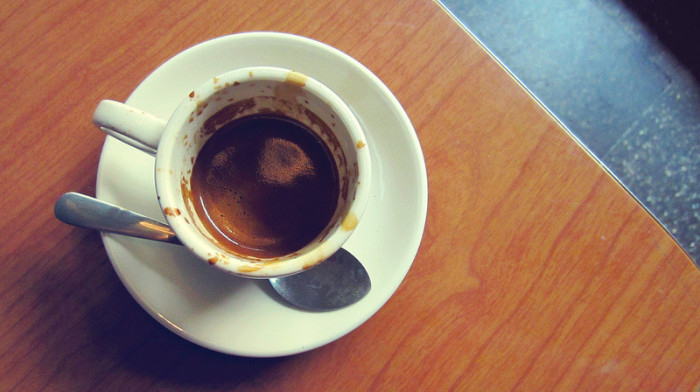Lent is a season of mindfulness and reflection, which is something that everyone can practice all year round.
I took an unusual amount of time this morning savoring my steaming cup of coffee. It is the last one I’m going to be having in a while, 40 days to be exact, and I wanted to make sure I soaked up every molecule of smoky, aromatic flavor I could. No, I’m not going on a coffee detox, although I admit that I’ve successfully weaned myself of a mild addiction to caffeine. Rather, tomorrow is Ash Wednesday, which for Christians, and Catholics in particular, is the beginning of another kind of detox, one for the mind and spirit.
Growing up in a large Catholic family, I was taught to approach Ash Wednesday with a sense of dread for the long-term forecast of deprivation and suffering. The 40 days that follow, known as Lent, include a variety of food-related abstentions meant to cleanse the soul in preparation for Easter. It is modeled after the fasting Jesus undertook during His journey into the desert before Passover, and before the events that preceded His crucifixion. The Catholic Church modified Jesus’s sufferings for us mortals, so instead all adults over the age of 14 must refrain from eating meat on Fridays during Lent and Ash Wednesday (think vegetarian, but not vegan), and those between 18-59 years of age must also fast (no food except for one full meal, or two small meals that make up one) on Ash Wednesday and Good Friday (the Friday before Easter Sunday). These rules have their exceptions depending on individual health concerns and needs.
The big thing about Lent, though, is the idea of “giving up” something that you love and would genuinely suffer without for this extended period of time. This custom has, like Santa Claus and the Easter Bunny, disseminated from religious tradition into popular culture. Many of my friends who are not Christian or even just marginally so are diligent about picking something really good to give up for Lent. It’s usually chocolate or some other sweet or tempting food; drinking, smoking, and a host of other vices are also popular choices. For the non-religious, Lent is often an excuse to finally act upon that diet they meant to start January 1 (or maybe did start, but failed), or get in shape in time for spring and summer. It sometimes even becomes a game or competition to see who can last longest with their Lenten sacrifice.
I’ve had my fair share of Lents sans chocolate, ice cream, cake, dry fruit, and even peanut butter. And this year I’m still taking part in the “giving up” tradition. But this year, I’m also more mindful than ever of the real message that the Church is promoting during the season of Lent: the idea of giving up part of yourself as a means of reflection and a chance to renew your spirit. Rather than simply eliminating a food from my diet, which is no doubt challenging and trying on anyone’s soul, I can do even more by giving up a negative attitude and replacing it with a positive one. Give up lying or cursing and resolve instead to tell the truth and use kind, supportive words (and none at all when you can’t). Give up the $4 you’d spend on coffee and instead give it to someone who’s homeless on the street, or a hungry family in a foreign country. Don’t “give up” anything at all, in the sense of denial, but instead think of purifying and centering yourself by removing the things in your life that are polluting it.
For Catholics, Easter is all about the promise of new beginnings, and Lent allows for a gradual letting go of the things that stand in the way of those opportunities. This isn’t idea that is bound to religious doctrine, though; rather, it’s one that everyone regardless of their beliefs can incorporate into their lives. Just as most people don’t become vegan purely to lose weight (some do), Lent shouldn’t be the excuse for cleaning up the junk that is in your body or mind: that can happen any time of year, and not be limited to 40 days. So tomorrow morning, if you see people around you with ashes on their foreheads, or if you are among them, let that remind you not to toss those tempting candy bars in your kitchen cabinet, but what else you could do right now to make your life, and your presence in the world, a more meaningful one.
Also by Jen: 5 Tips for Keeping Your Feet Beautiful and Healthy
Are You in Danger of a Burnout?
Inspired Living: How to Set Goals for a Happy Life
__
Photo: Mike Chaput





